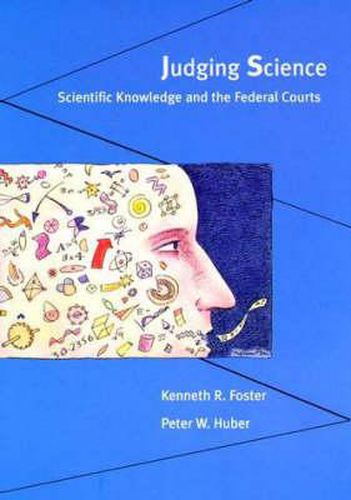Readings Newsletter
Become a Readings Member to make your shopping experience even easier.
Sign in or sign up for free!
You’re not far away from qualifying for FREE standard shipping within Australia
You’ve qualified for FREE standard shipping within Australia
The cart is loading…






Attempting to reconcile the law’s need for workable rules of evidence with the views of scientific validity and reliability.
What is scientific knowledge and when is it reliable? These deceptively simple questions have been the source of endless controversy. In 1993, the Supreme Court handed down a landmark ruling on the use of scientific evidence in federal courts. Federal judges may admit expert scientific evidence only if it merits the label scientific knowledge. The testimony must be scientifically reliable and valid. This book is organized around the criteria set out in the 1993 ruling. Following a general overview, the authors look at issues of fit-whether a plausible theory relates specific facts to the larger factual issues in contention; philosophical concepts such as the falsifiability of scientific claims; scientific error; reliability in science, particularly in fields such as epidemiology and toxicology; the meaning of scientific validity ; peer review and the problem of boundary setting; and the risks of confusion and prejudice when presenting science to a jury. The book’s conclusion attempts to reconcile the law’s need for workable rules of evidence with the views of scientific validity and reliability that emerge from science and other disciplines.
$9.00 standard shipping within Australia
FREE standard shipping within Australia for orders over $100.00
Express & International shipping calculated at checkout
Stock availability can be subject to change without notice. We recommend calling the shop or contacting our online team to check availability of low stock items. Please see our Shopping Online page for more details.
Attempting to reconcile the law’s need for workable rules of evidence with the views of scientific validity and reliability.
What is scientific knowledge and when is it reliable? These deceptively simple questions have been the source of endless controversy. In 1993, the Supreme Court handed down a landmark ruling on the use of scientific evidence in federal courts. Federal judges may admit expert scientific evidence only if it merits the label scientific knowledge. The testimony must be scientifically reliable and valid. This book is organized around the criteria set out in the 1993 ruling. Following a general overview, the authors look at issues of fit-whether a plausible theory relates specific facts to the larger factual issues in contention; philosophical concepts such as the falsifiability of scientific claims; scientific error; reliability in science, particularly in fields such as epidemiology and toxicology; the meaning of scientific validity ; peer review and the problem of boundary setting; and the risks of confusion and prejudice when presenting science to a jury. The book’s conclusion attempts to reconcile the law’s need for workable rules of evidence with the views of scientific validity and reliability that emerge from science and other disciplines.